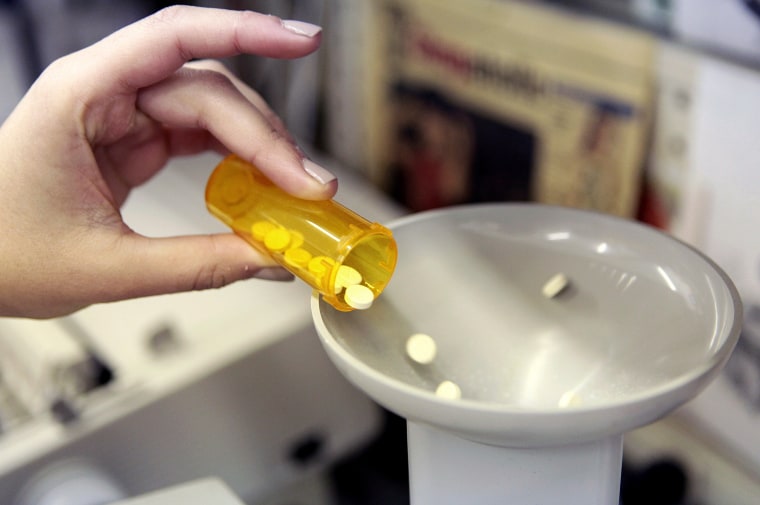Donald Trump loves to tell people great things will happen "in two weeks," though more often than not, the president has just made up that timeline, and the promised results never materialize.
Consider Trump's rhetoric at a White House event on May 30. Referring to an imminent drop in the cost of prescription medication, the president declared with pride, "You're going to have some big news. I think we're going to have some of the big drug companies in two weeks, and they're going to announce -- because of what we did -- they're going to announce voluntary massive drops in prices.... That's going to be a fantastic thing."
Many of the nation's largest pharmaceutical companies had absolutely no idea what Trump was talking about, but the White House made no effort to walk back the president's vow.
That changed yesterday. Two weeks after Trump talked up the "fantastic thing" that would happen on June 13 -- which is to say, today -- Sen. Elizabeth Warren (D-Mass.) pressed Health and Human Services Secretary Alex Azar for an update on the presidential promise. It didn't go especially well.
WARREN: The same day that the president made those statements, [Sen. Tina Smith of Minnesota] and I sent letters to the top 10 drug manufacturers to see how many had lowered prices in response to the blueprint, and all 10 of them have now responded. Zero out of 10 said that they had lowered any prices. Zero out of 10 gave any indication that they plan to do so. And in fact, 1 out of 10 said prices are going to go up later this year. So maybe you can clear this up for us. Secretary Azar, which drug companies will be voluntarily lowering their prices massively, for which drugs, and how much money will the American people save as a result?AZAR: So there are actually several drug companies that are looking at substantial and material decreases of drug prices in competitive classes....
The Democratic senator interrupted Trump's cabinet secretary, zeroing in on his "looking at" phrasing as proof that the president's promise from 14 days ago was untrue.
The only thing "massive" in this case is the scope of Trump's willingness to make stuff up.
Indeed, there's some evidence to suggest the president got this backwards. The Washington Post reported late last week:
Two weeks after President Trump in May unveiled a plan to lower drug prices for Americans, promising "it will start to take effect very soon," the drug company Bayer hiked the list prices of two cancer drugs by more than $1,000 per month.Bayer wasn't alone. A research note by Wells Fargo analyst David Maris found that although fewer drug-price increases occurred in May than in previous months, dozens of increases did occur.
A New York Times published a report a few days earlier noting that the White House blueprint to lower prescription drug prices could "significantly increase out-of-pocket costs" for some consumers.
In case anyone's forgotten, one of the few key areas on which Trump broke with Republican Party orthodoxy in 2016 was lowering prices on prescription drugs. In fact, he complained bitterly shortly before taking office about the pharmaceutical industry’s powerful lobbyists, and said drug companies are “getting away with murder.”
The president has even accused the drug industry of corruption, arguing that pharmaceutical companies contribute “massive amounts of money” to politicians as part of a scheme to keep the cost of medicines higher.
And then the president's posture changed. Trump put a pharmaceutical company executive in charge of HHS, and just as importantly, one of the key architects of the White House drug-price plan was a top lobbyist for a pharmaceutical company.
Politico reported last month that the former lobbyist, Joe Grogan, worked on these issues as recently as last spring, and "didn't obtain a waiver from a directive Trump issued during his first week in office that imposed a two-year cooling-off period between lobbying and regulating on the same 'specific issue area.'"
If you believed all of Trump's posturing on lowering drug costs, I'm afraid I have some bad news.
